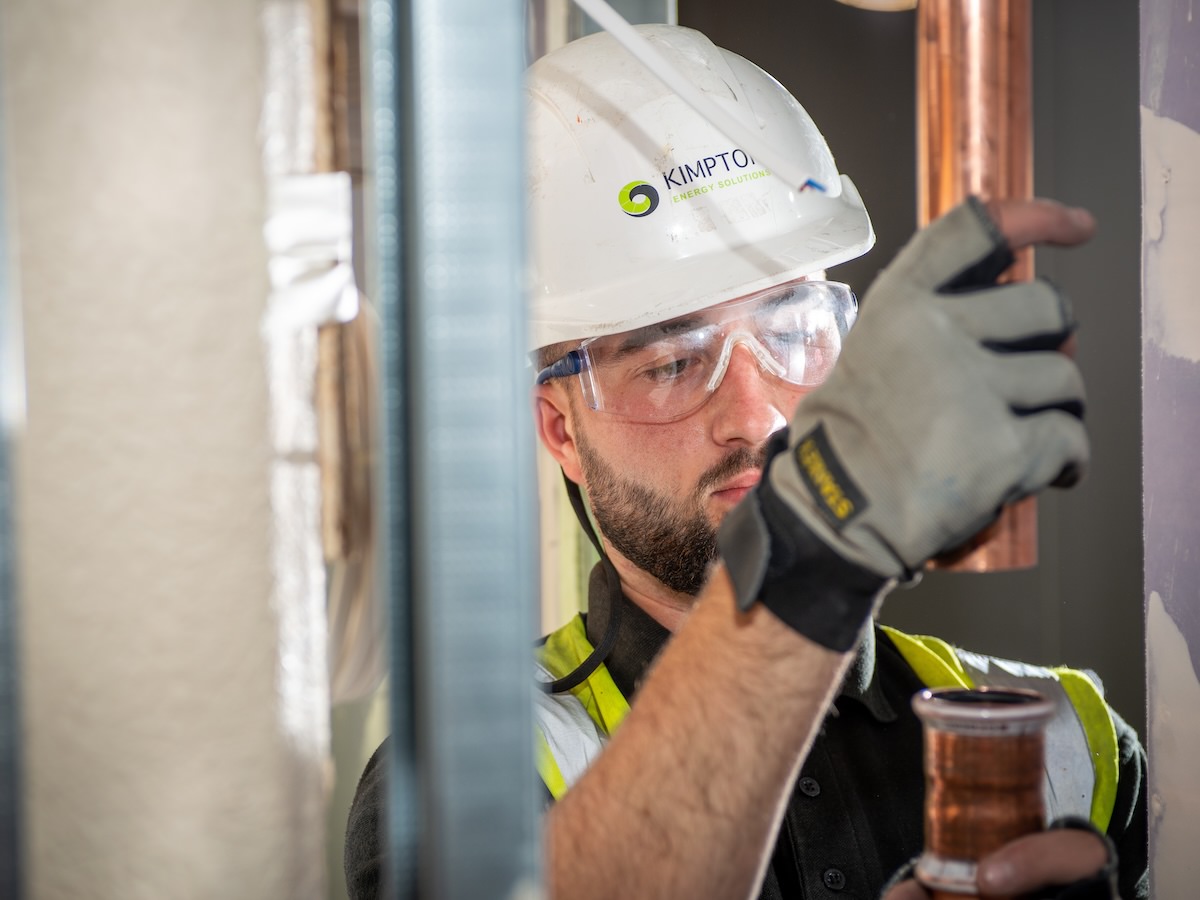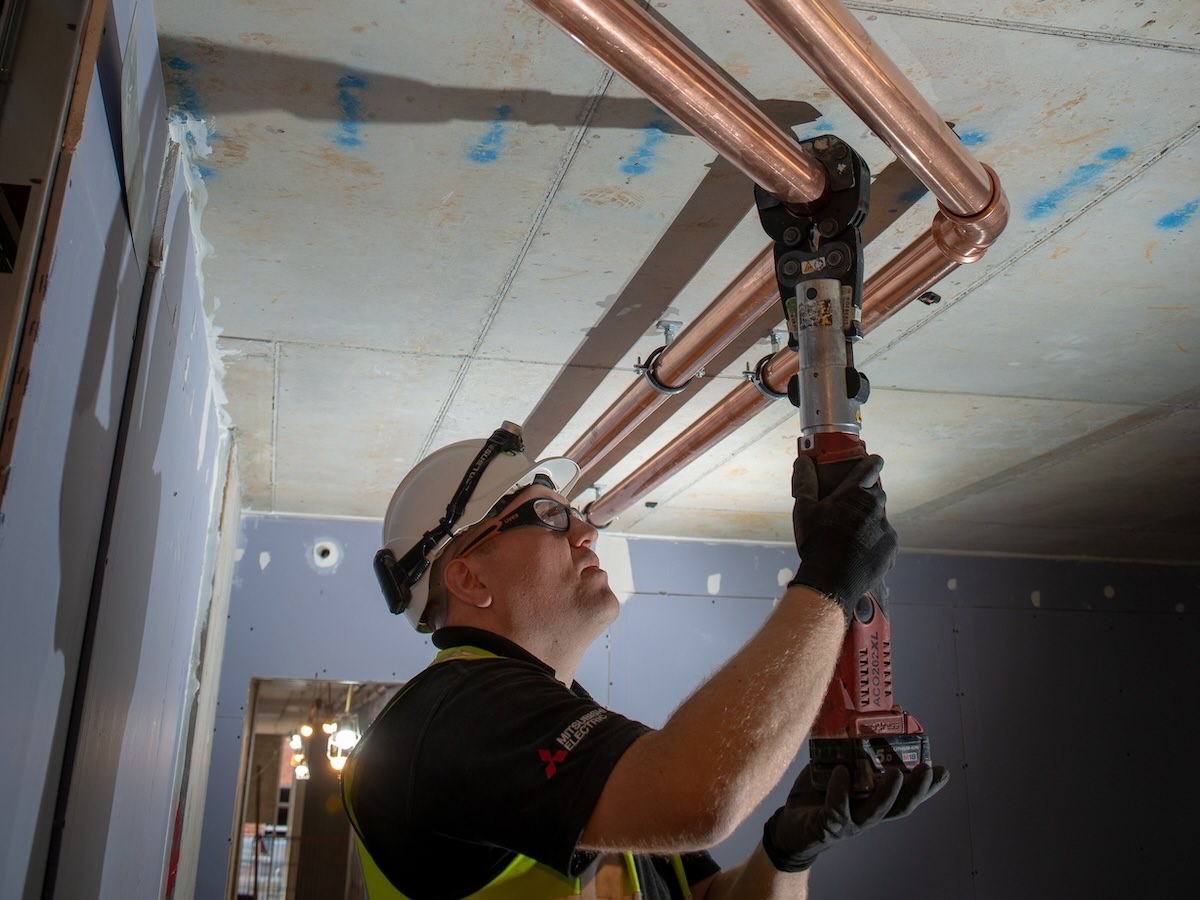
Carbon Steel pipework rose in popularity for heating and cooling applications in 2011 after a significant rise in the price of copper. When lower costs were paired with faster installation times, due to its press-fit installation, it was for a while, seen as a perfect alternative to copper pipework. Sadly, as with many things, if it looks too good to be true, then it probably is. Carbon steel pipework was soon discovered to be prone to corrosion and is being replaced with traditional copper pipework by many.
A meticulous water treatment regime, can prolong the life of carbon steel pipework. It needs to be treated with an inhibitor from day one to ensure corrosion doesn’t get hold and then it needs regular water monitoring and ongoing treatment to ensure it has the best chance of staying in optimal condition.
Carbon pipework is however a thin walled steel tube and prone to rust. A slightly greasy and acidic finger print from the installer, can start the rot. When the pipe is installed outdoors (which is no longer recommended) then it needs to be fully vapour wrapped and well lagged to ensure it’s not attacked by rain and poor weather. Over time, out in the elements, protection will break down enough, to allow some water ingress and encourage corrosion to begin.
Our own PPM teams have completed many carbon steel replacement projects over the years and the number is growing every year. As the pipe begins to fail, pinholes appear on the outside, as well as the unseen ones on the inside. These cause the pipes to weep and eventually become full blown leaks.
Logic would say that the solution is to drain the system, clean it and then refill with fresh water and add a new inhibitor. In reality this can make things worse. The cleaning process can cause more damage to the already thin walls of the pipe and then the fresh, oxygenated water provides an almost perfect environment for corrosion to thrive.
Untreated water within a carbon steel piped system quickly rises in its iron content as corrosion begins and this can have a direct effect on the RO (Reverse Osmosis) membrane that is usually fitted to remove contaminants from water systems.
One early high profile failure was at Royal Victoria Hospital, Belfast. The opening of a new £150m critical care unit at Belfast’s Royal Victoria Hospital, hit problems in 2012 after the discovery of corroded pipework during final checks. The discovery resulted in significant delays to the project, which finally fully opened two years late.
The recent £130k project we completed at Arrowe Park Hospital was because the existing pipework had been installed in pressfit carbon steel, which had become corroded and was in danger of failing. Our team worked their way through ward by ward, in a live hospital environment, to replace all of the corroded pipe with new copper pipe.

Our advice first and foremost would be to begin to budget for replacement, as it does have a finite life. With many early applications failing already, more will follow.
When our engineers start work on site, their first job is normally to complete an audit of the plant, machinery and pipework. A visual inspection of the pipe will show whether there are early signs of corrosion, in which case replacement will be required in the short or medium term.
We were recently asked to perform Non Destructive testing (NDT) on a carbon steel pipe system. This is technically possible, but so horrifically time consuming and expensive that the cost of a full replacement would be lower than the testing.
Our PPM teams work in the Liverpool City Region and the North West of the UK and Wales. If you think you may have carbon steel pipework within your system, then please do call us. We will give you an honest assessment of its condition and likely time to fail.
Please call us on 0151 343 1963, drop us an email on website@kimpton.co.uk or complete the form below.
If you would like to discuss any of our services, please call 0151 343 1963 or complete the form below and we will be in touch shortly.